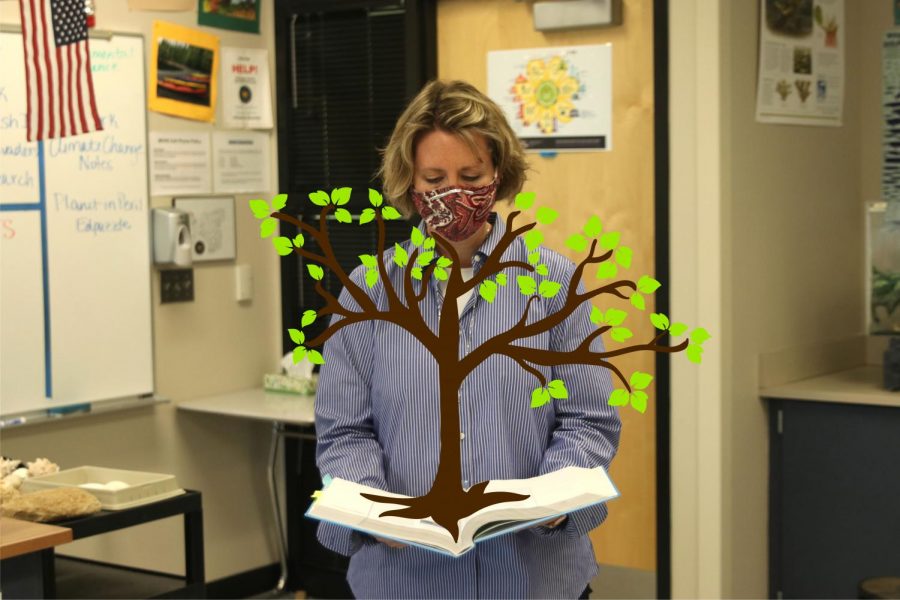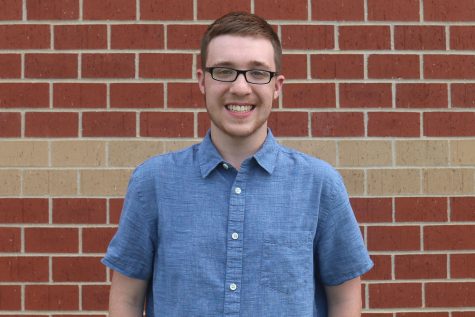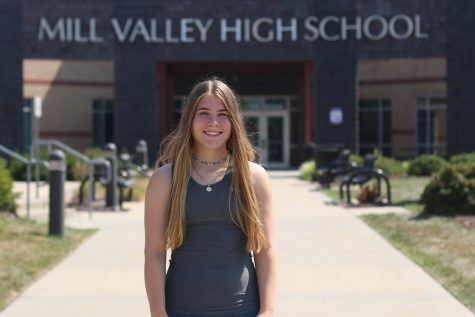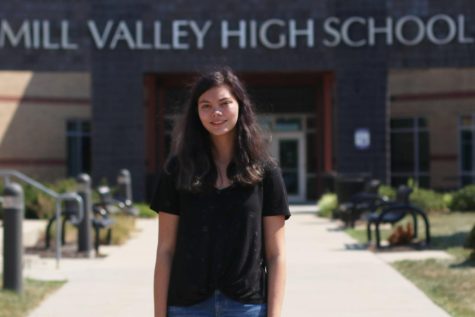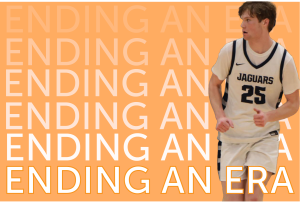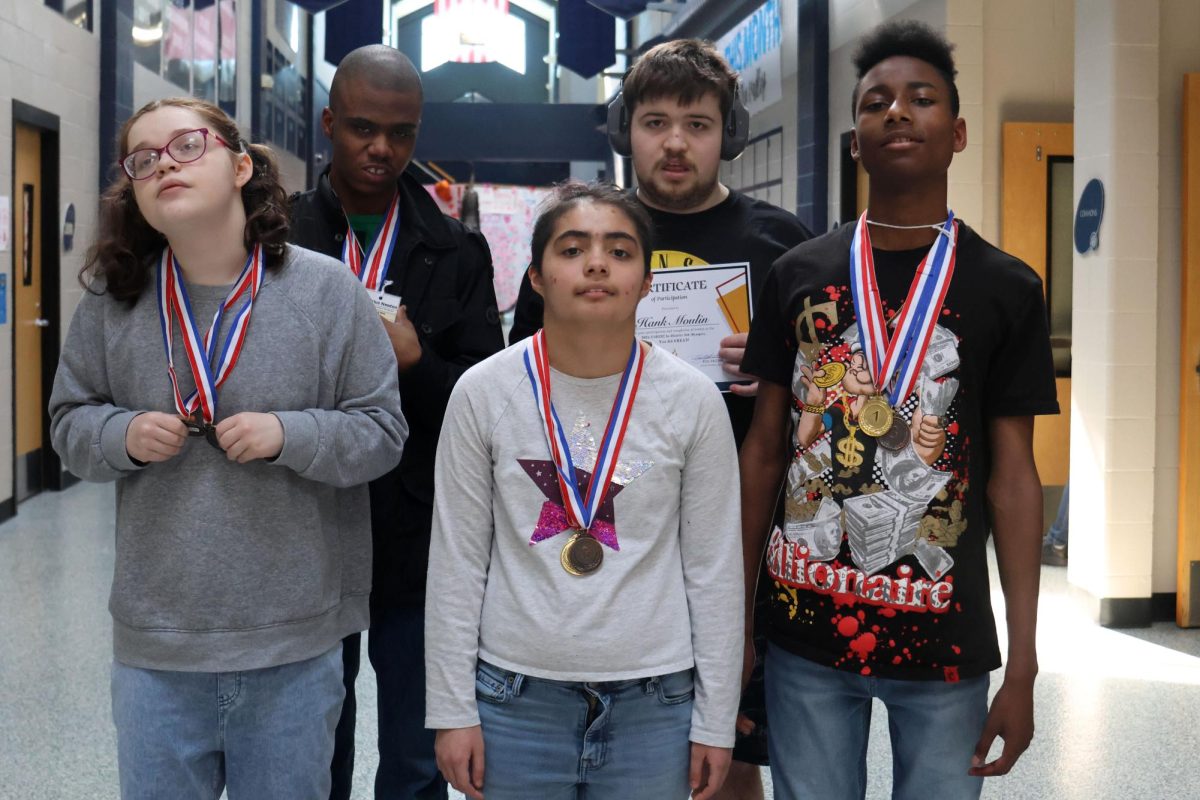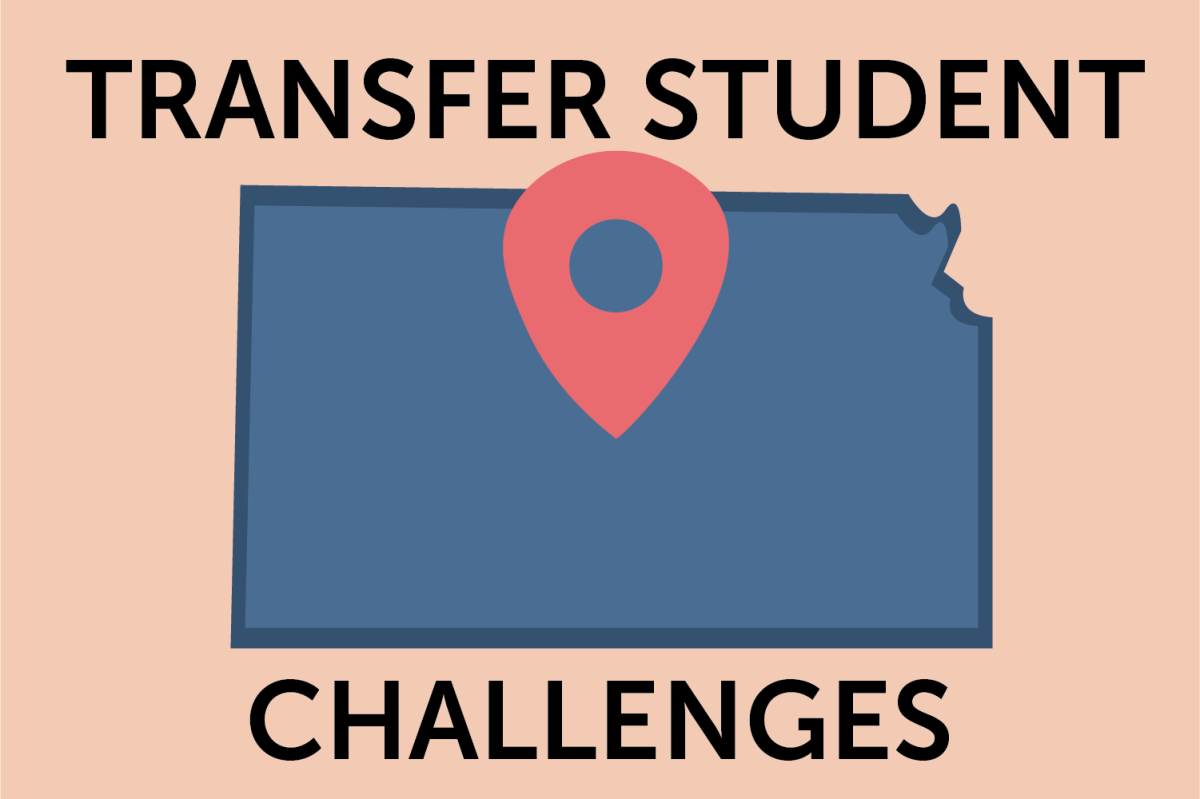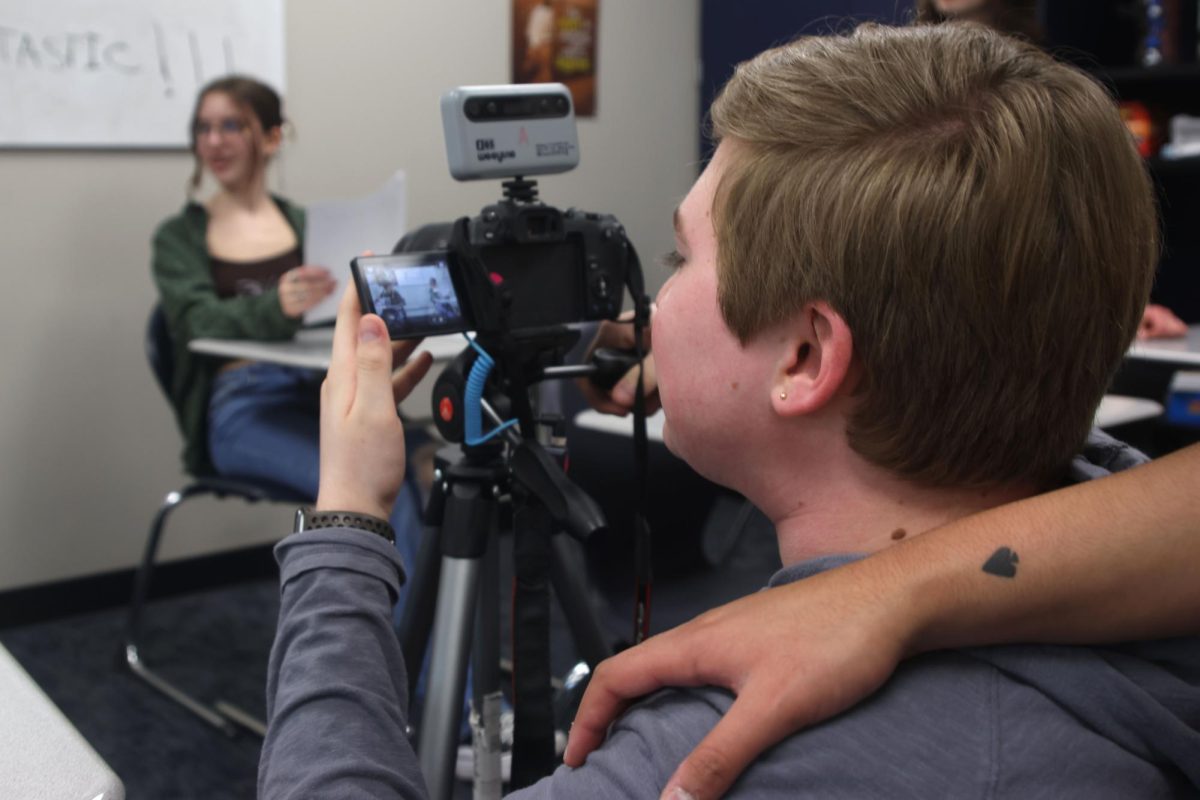The importance of the environment in our curriculum
Students and staff discuss how the environment is taught about in classes and the importance of taking action
By Steven Curto
Holding up an environmental science textbook, science teacher Julie Roberts reflects on how teaching climate change is less stigmatized now than at the start of her career, “…13 years ago there was more skepticism when it came to climate change. We don’t really see that anymore.”
April 24, 2021
With the effects of climate change becoming ever apparent, students and teachers alike see the importance of a curriculum that focuses on the environment. The Kansas curriculum asks teachers to teach students to “design, evaluate, and refine a solution for reducing the impacts of human activities on the environment and biodiversity,” something teachers have addressed in a variety of different ways.
Environmental science teacher Julie Roberts focuses on the importance of what her students can do to help the environment.
“We spend a lot of time talking about what types of things we can do to help the environment,” Roberts said. “You can turn off lights when you leave a room. Not leave unnecessary things charging all night like leaving your phone charging all night or leaving your computer on and not turning it off.”
In his Political Participation class, George Walden takes a different approach, focusing on the politics surrounding climate change.
“In Political Participation, we look at … how Democrats feel about climate change, and how Republicans feel about climate change, and the disagreements that take place,” Walden said. “Scientifically, it’s been proven that our temperatures are rising, but because of the politics behind it, we can’t get anything solved.”
Former student Nora Lucas, who is majoring in Environmental Science at the University of Nebraska-Lincoln, felt that her environmental education from Mill Valley gave her a good base of knowledge for the classes she has taken in college.
“I’m learning about the land, the ocean, the atmosphere, the soil and the water, and those are kind of the big aspects of climate change,” Lucas said. “It’s definitely more applications from core classes that get applied into the environment.”
Over the years, Walden has seen a large change in how students have approached conversations about the environment in his classes.
“It’s evolved over time to where now students are coming in and they’re concerned already. Whereas 10 years ago, students were like ‘Man, why are we studying this?’” Walden said.
For sophomore Sydney Downey, science classes, while well intentioned, don’t go quite far enough when it comes to environmental education.
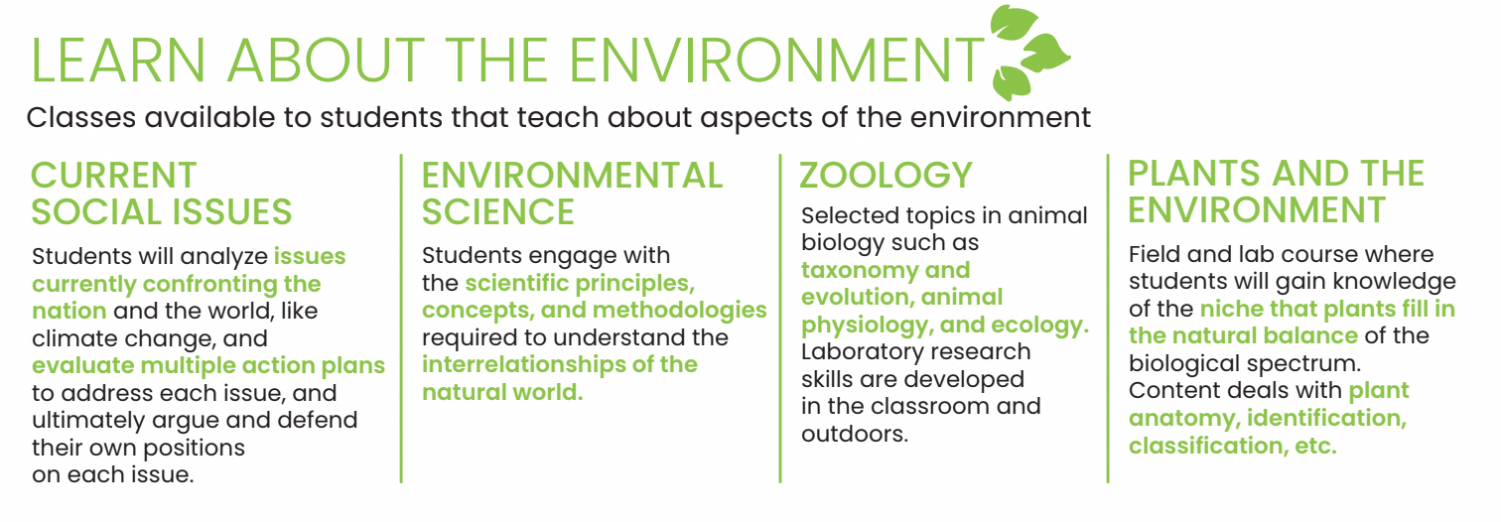 “It depends on the classes you take. I think they try, but it’s very difficult to cram that into a regular science class,” Downey said. “Being informed is a lot better than not, having that idea of ‘oh this is what I’m doing and this is how it’s affecting everything’, and just being aware of the bad is important.”
“It depends on the classes you take. I think they try, but it’s very difficult to cram that into a regular science class,” Downey said. “Being informed is a lot better than not, having that idea of ‘oh this is what I’m doing and this is how it’s affecting everything’, and just being aware of the bad is important.”
For Lucas, who wants to use her knowledge of geographic information systems, learning about climate change has the potential to help people adapt to its effects.
“You can map a lot of different things … that have so many applications of helping communities prepare for natural disasters,” Lucas said. “The goal is to help other people to help educate communities and help them prepare for climate change.”
Walden feels that now is the time for the change, before the effects become irreversible.
“It’s super important and I hope someday we make changes,” Walden said. “I feel like we’re at a kind of tipping point right now. We’re still driving our cars and flying our airplanes, and I don’t know if that’ll ever stop. I think if something catastrophic were to take place, maybe people will all wake up at once. I don’t know if that’ll happen. And if it does, it might be too late.”
Roberts feels that studying environmental science is incredibly important for all students.
“I wish this school, the district, would require a semester of environmental science for everybody before they graduate,” Roberts said. “In my opinion it is the most important science we have that has an impact on everybody every day and our futures depend on it.”



